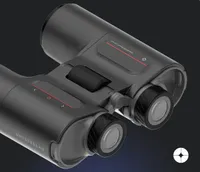'It felt like something out of Star Trek.' I got a first look at the Unistellar Envision smart binoculars (video)
These binoculars guide you through the night sky in real time, with a database of 200,000 stars, and in this hands-on test, I was impressed with their quality. They're currently also $500 off for pre-orders.
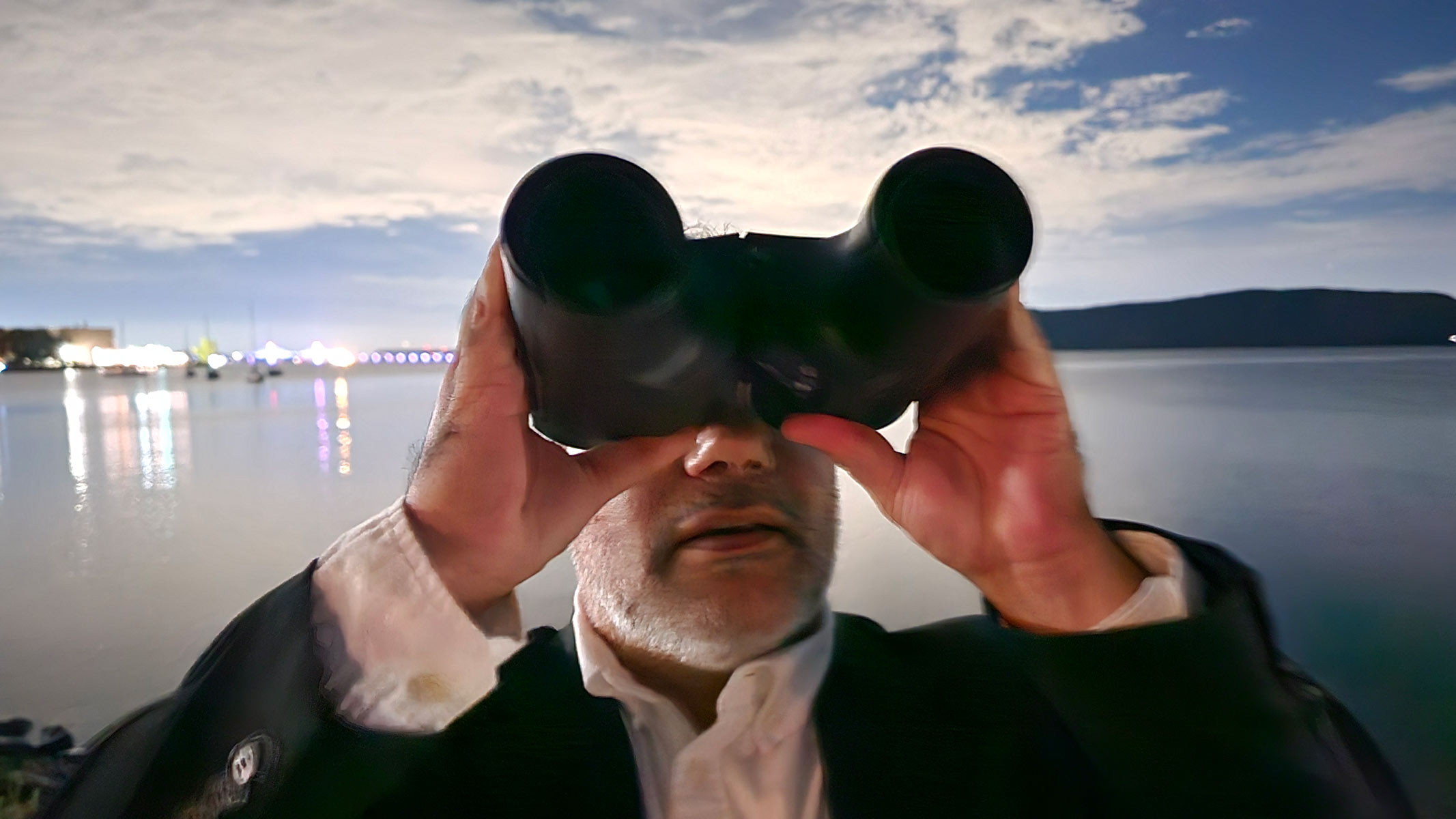
Breaking space news, the latest updates on rocket launches, skywatching events and more!
You are now subscribed
Your newsletter sign-up was successful
Want to add more newsletters?

Delivered daily
Daily Newsletter
Breaking space news, the latest updates on rocket launches, skywatching events and more!

Once a month
Watch This Space
Sign up to our monthly entertainment newsletter to keep up with all our coverage of the latest sci-fi and space movies, tv shows, games and books.

Once a week
Night Sky This Week
Discover this week's must-see night sky events, moon phases, and stunning astrophotos. Sign up for our skywatching newsletter and explore the universe with us!

Twice a month
Strange New Words
Space.com's Sci-Fi Reader's Club. Read a sci-fi short story every month and join a virtual community of fellow science fiction fans!
The brand new Unistellar Envision smart binoculars are about to launch and I got the chance to try them out early during a trip to the Hudson River in New York. Immediately, I was struck by how sci-fi they felt.
First, some context: Unistellar is a telescope and binocular optics manufacturer known for its Odyssey smart telescopes (not to mention the eQuinox 2) that connect stargazers with the night sky. You can find our reviews of that gear on our list of the best smart telescopes available now.
But the Envision binoculars, which Unistellar initially developed via a Kickstarter that raised $2.7 million with 3,700 backers, are something new: a set of smart binoculars that use GPS and geospatial data and an augmented reality overlay to give real-time information on what an observer is seeing. Unistellar began taking pre-orders for the binoculars on Oct. 1 for $999, offering $500 off the full price of $1,499.
Grab these brand new star-guiding smart binoculars now before the discount lapses, only 129 units left at this price at time of writing.

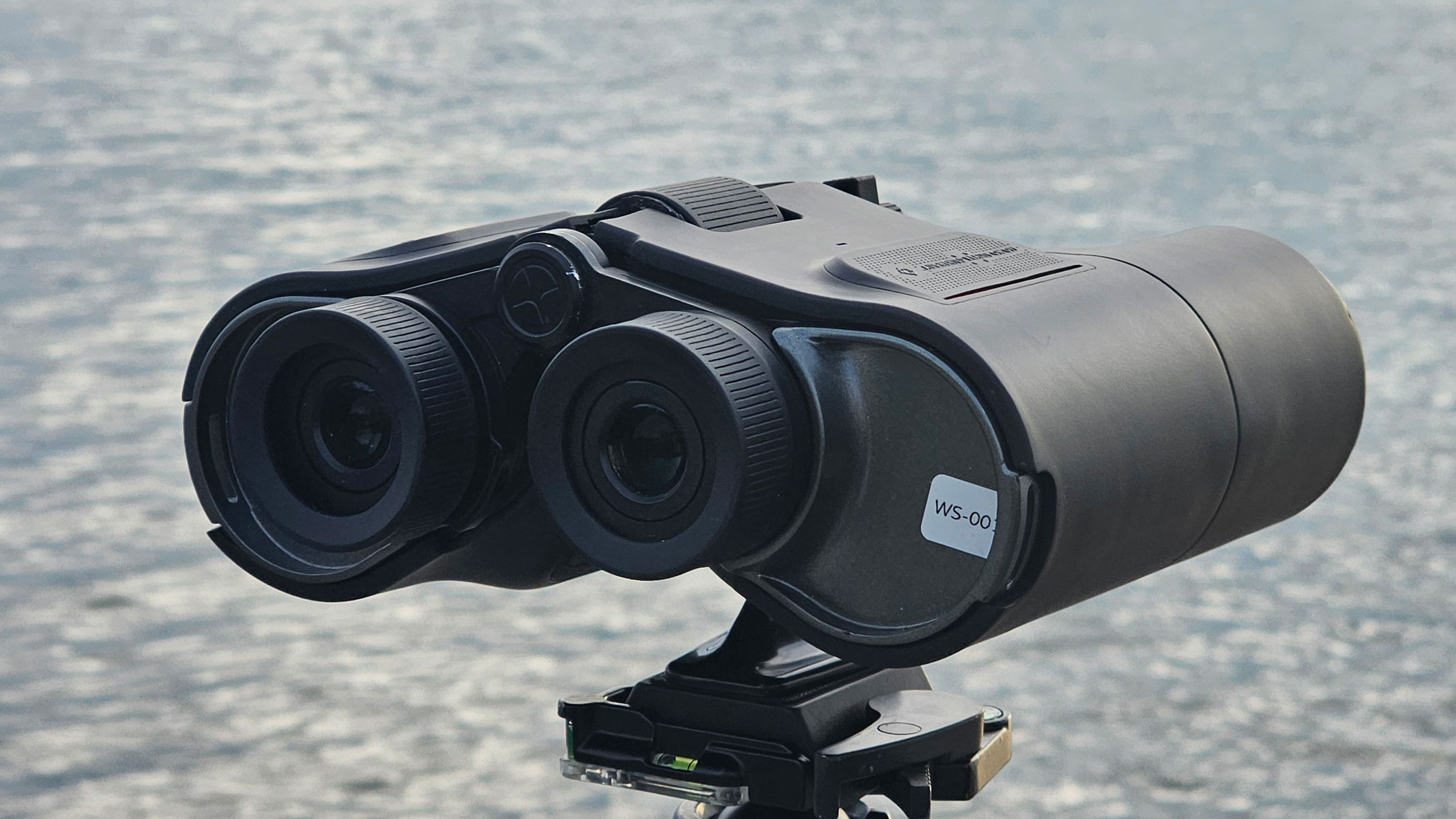
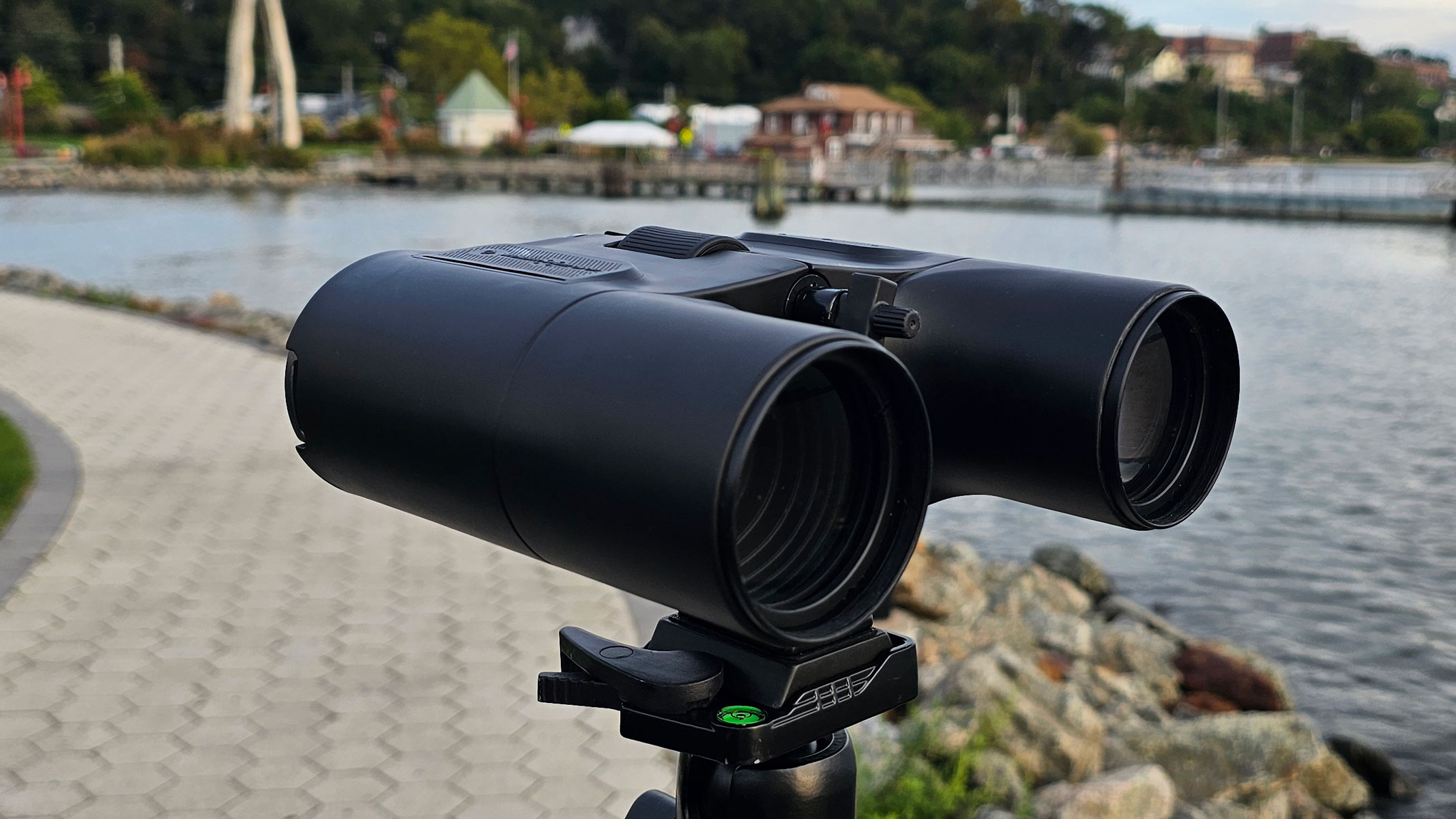
In my test, these 10x magnification binoculars use an augmented reality overlay projected into the eyepieces to guide me through the local topography and across the night sky. For stargazers, this is of interest as it synchronizes with a database of 200,000 stars via the Unistellar app.
By using GPS and mapping data, fed through a Bluetooth connection to Unistellar's app, the binoculars overlaid graphics onto the contours of the nearby mountains, telling me what I was seeing in real-time. It felt like something out of Star Wars or Star Trek. Unistellar plans to have over 1 million terrestrial points of interest added to its database, with Envision including real-time altitude, distance and azimuth data into the display.
I'm not that familiar with local geography and was pretty tickled to learn that what looked like a low hill in the distance was actually Mount Nebo, which was a fun name to learn. I can see how these binoculars can add to a sense of place and discovery when you're out on a hike or exploring a new place for the first time. At the time of writing, Unistellar is accepting pre-orders on units, which are also discounted $500, with just 129 units left.
But it was when night fell that the binoculars truly stood out. With a catalog of over 200,000 stars built into Unistellar's app, I was able to easily identify stars in the sky, both by name and location.
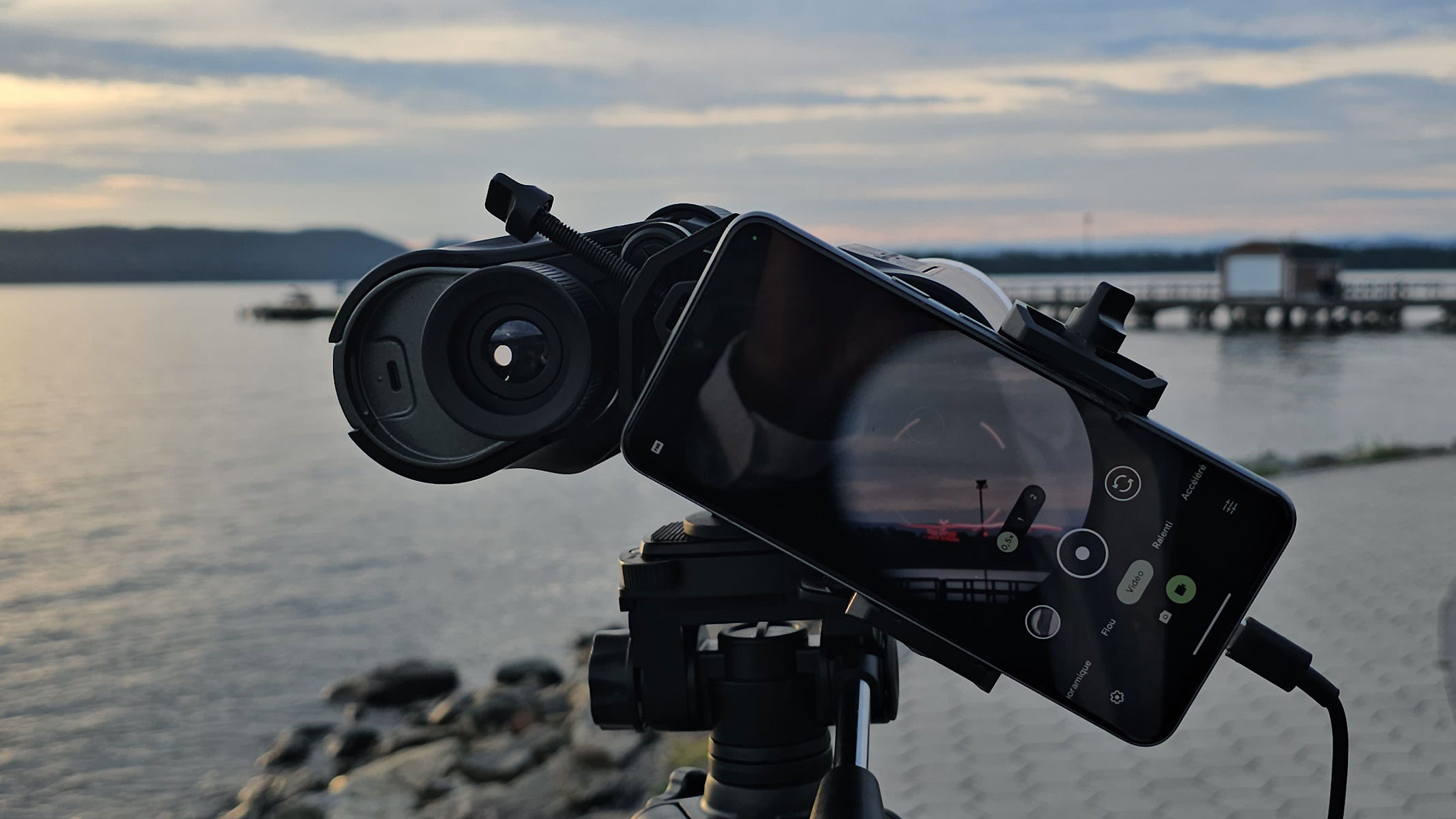
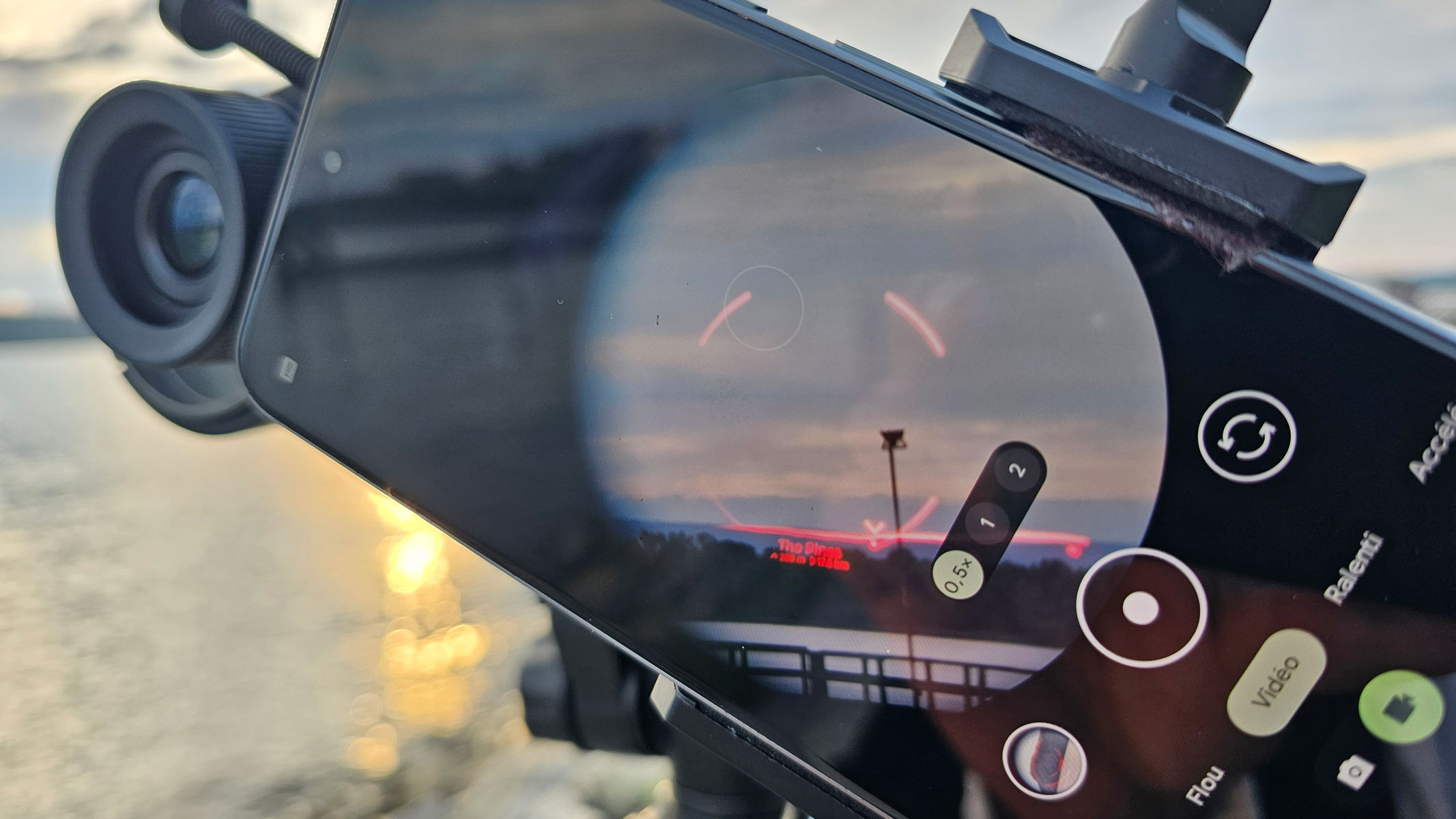

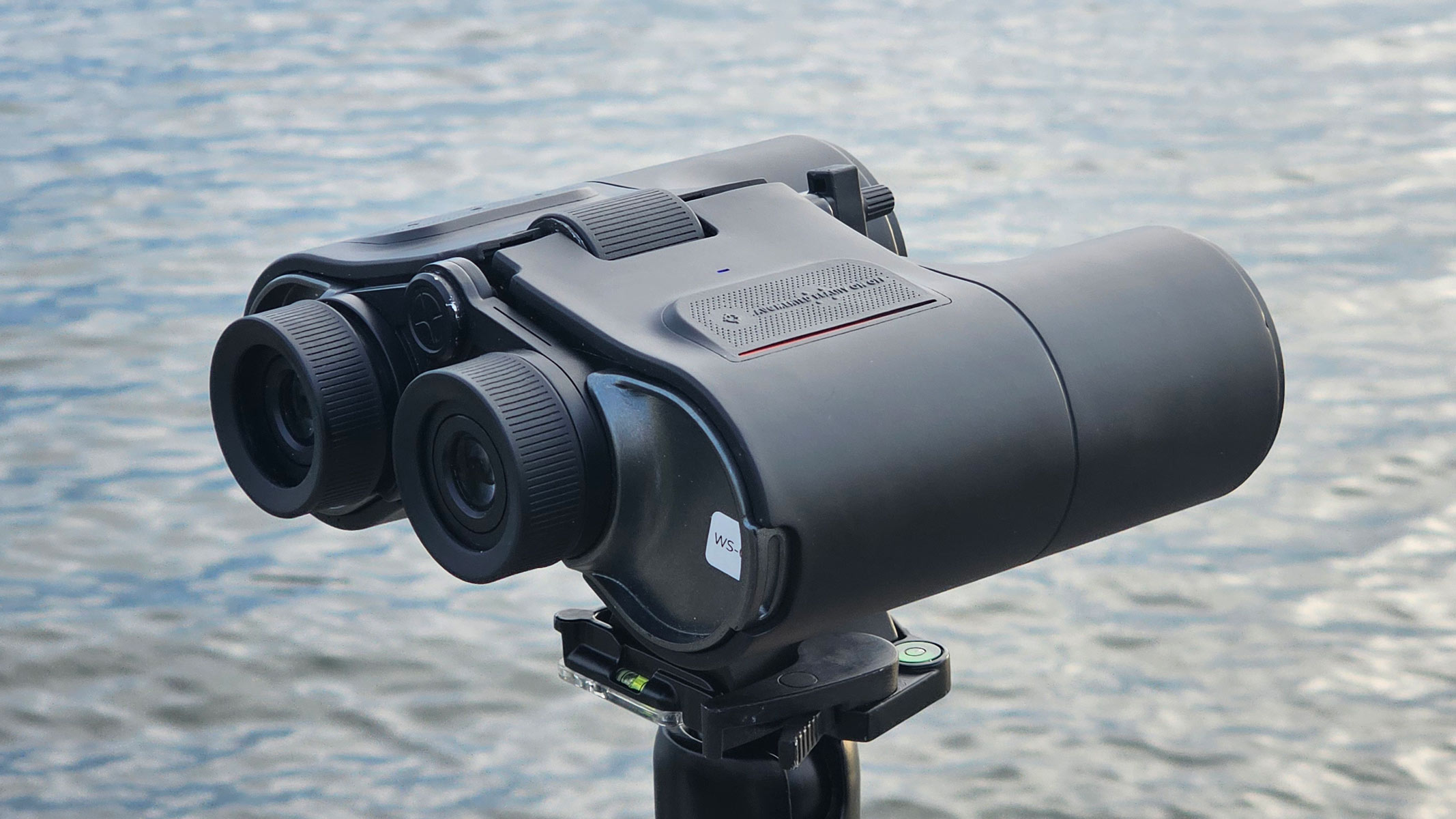
Its guided navigation mode suggested some sights that we might find of interest, but I was more struck by its Target-Lock Sharing, in which Unistellar picked a star like Polaris for us to see, and another tester and I used different Envision binoculars to find the same target, guided by visible direction arrows on the overlay.
I initially assumed that the smart Envisions might have had a built-in camera to capture images but after extended testing, I felt that they were weighted more towards the personal experience of discovering and sharing views of the landscape and the night sky, rather than imaging those subjects. Ultimately, I understood the decision not to include this feature.

During my testing period, I tried using Envision both handheld and on a tripod. While there are advantages to both methods, I felt the tripod would only be necessary if you're trying to take photos through the binoculars using a separate camera or phone mount. The binoculars do not have an internal camera because it can interfere with its built-in magnetometer to properly render its AR display, a distortion that was pretty wild to see in real-time by moving a phone closer to the device.
Five buttons on top of the Envision are used to control the smart binoculars, switching between modes and turning the AR display on or off as needed. Unistellar promises at least a 5-hour battery life for the rechargeable system, but was confident they could last up to 10 hours on a single charge, depending on the use.
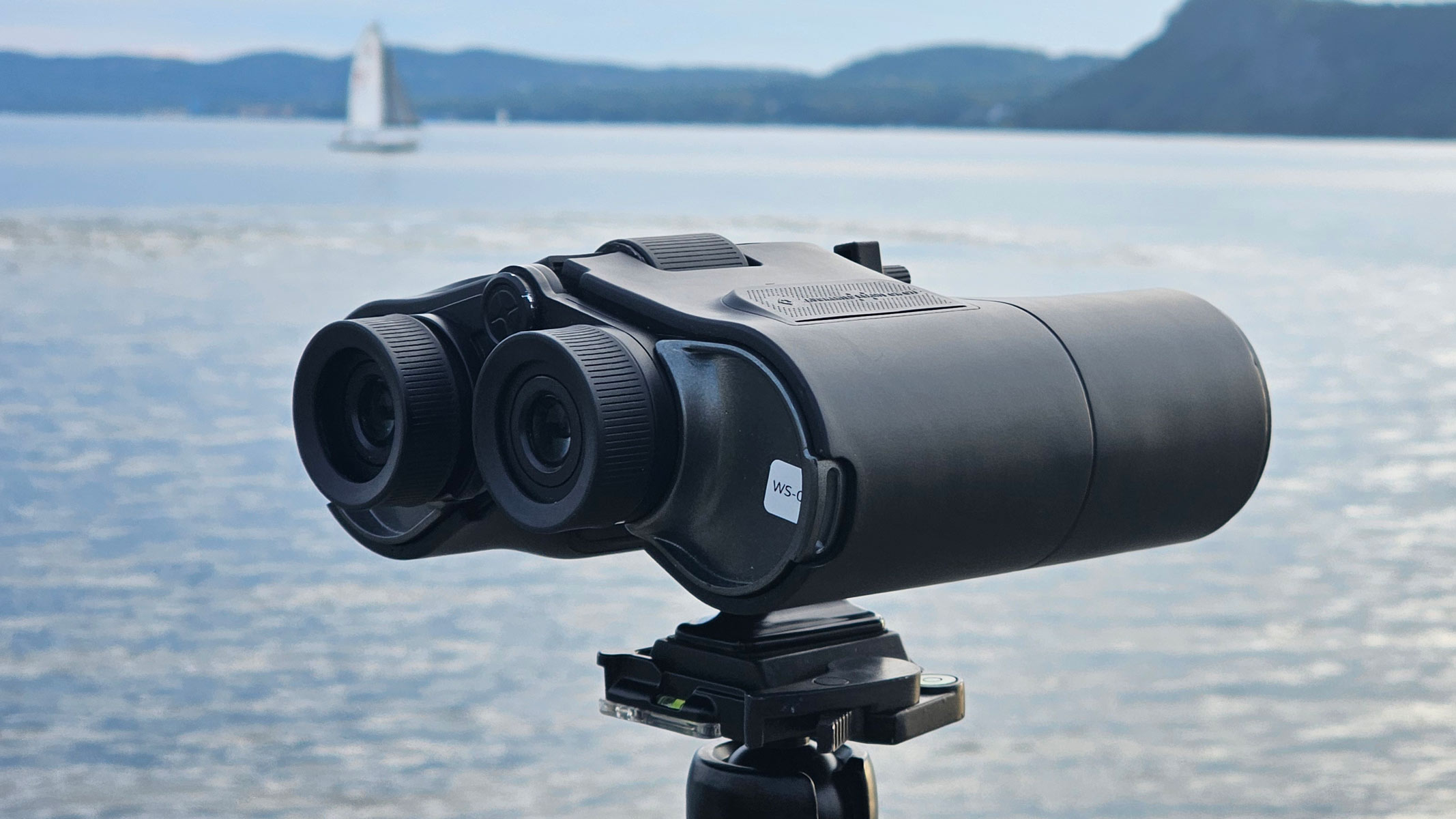
Initially, the $1,499 price tag for the Envision binoculars might seem steep (though the $500 discount for early orders is significant). However, considering smart binoculars are quite new to the market and there are few models available, what models exist are considerably expensive.
For context, the Swarovski Optik AX Visio 10x32 binocular that we reviewed is fantastic, but currently costs around $4,899. So $1,499 (or $999 with the early discount) feels suddenly quite affordable.
I see the value for the dedicated hiker or stargazer looking to better understand the night sky. And the ability to switch between the overlay and unaided modes adds a versatility that I could see tour groups, planetariums and even teachers use to introduce stargazers to the wonder of the night sky.
Ultimately, if you're up for some pretty game-changing binoculars and want to learn about the wonders of the stars (and landscape) without taking your eyes off the heavens, then these are the smart binoculars for you.
- We've got you covered with reviews and rankings of the best telescopes, binoculars, star projectors, cameras, drones, Lego, streaming and more.
Key features: 10x magnification, 10-hour battery life (rechargeable), Bluetooth, red augmented reality interface with 5-button control
Product launched: Pre-orders Oct. 1, first delivers ~ June-July 2026.
Price comparison: At $999 for pre-orders, Envision is well below the $4,899 Swarovski Optik AX Visio 10x32 (which uses AI to identify and snaps photos, but does not have AR elements).
First impressions: The handheld Envision feels like a piece of Star Trek tech in your hands, is easy to align and is packed with target objects for a curated observing experience.
Featured in guides: Best smart binoculars
✅ Buy it if: You're an avid outdoors type looking to augment day and nighttime observing with AR-driven features for target tracking, sharing and identification.
❌ Don't buy it if: You're looking for an astrophotography instrument, or looking for basic binoculars without the need for AR-assisted targeting.
Check out our other guides to the best telescopes, binoculars, cameras, star projectors, drones, lego and much more.
Breaking space news, the latest updates on rocket launches, skywatching events and more!

Tariq is the award-winning Editor-in-Chief of Space.com and joined the team in 2001. He covers human spaceflight, as well as skywatching and entertainment. He became Space.com's Editor-in-Chief in 2019. Before joining Space.com, Tariq was a staff reporter for The Los Angeles Times covering education and city beats in La Habra, Fullerton and Huntington Beach. He's a recipient of the 2022 Harry Kolcum Award for excellence in space reporting and the 2025 Space Pioneer Award from the National Space Society. He is an Eagle Scout and Space Camp alum with journalism degrees from the USC and NYU. You can find Tariq at Space.com and as the co-host to the This Week In Space podcast on the TWiT network. To see his latest project, you can follow Tariq on Twitter @tariqjmalik.
You must confirm your public display name before commenting
Please logout and then login again, you will then be prompted to enter your display name.
